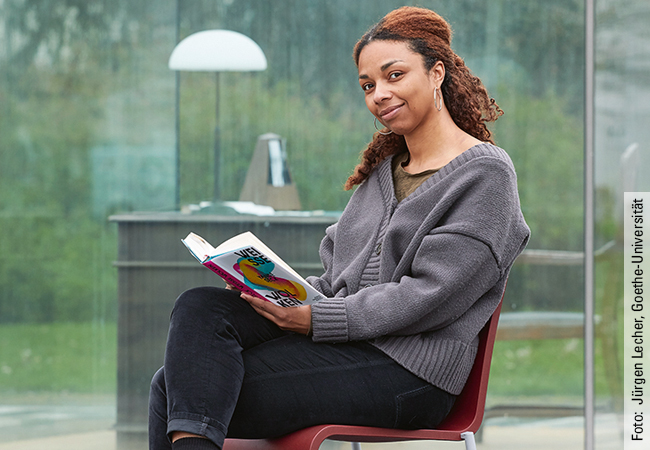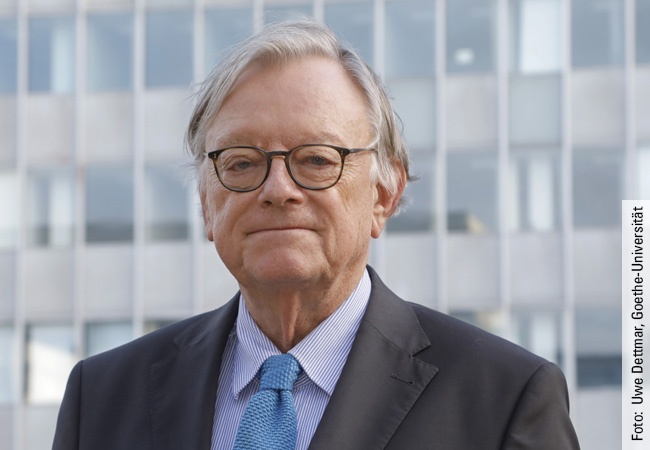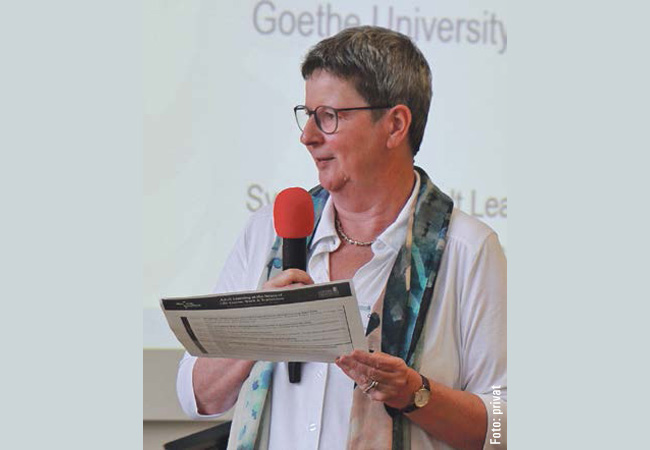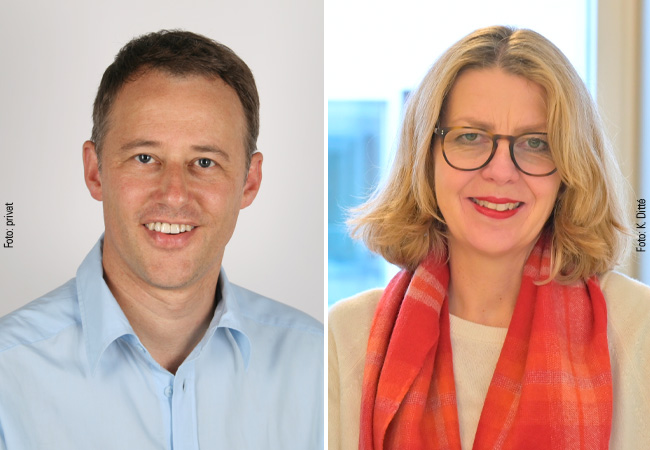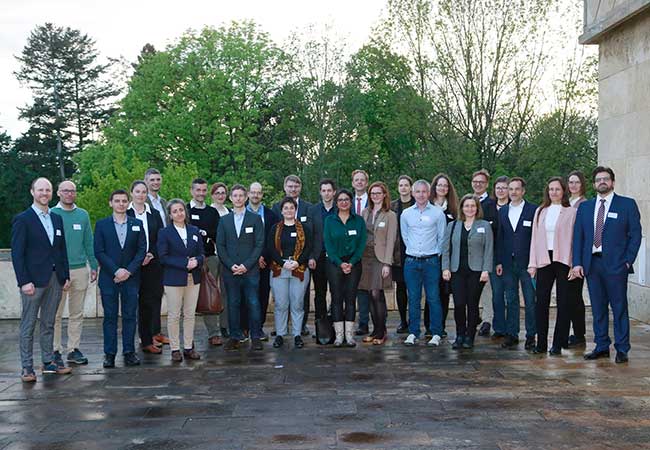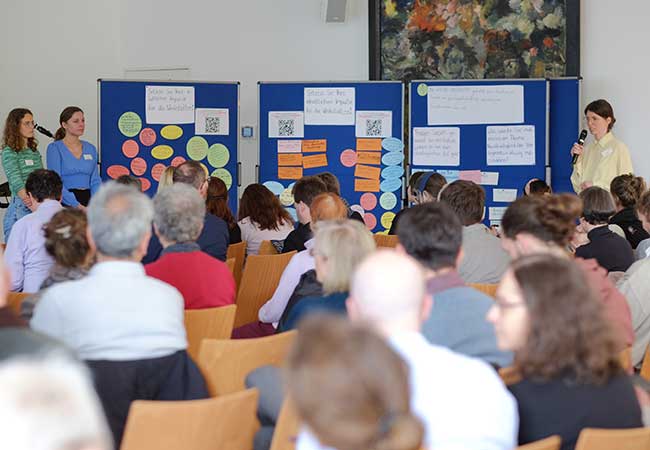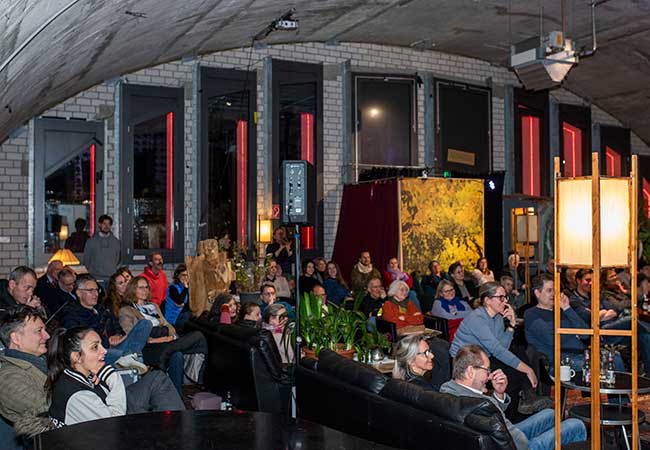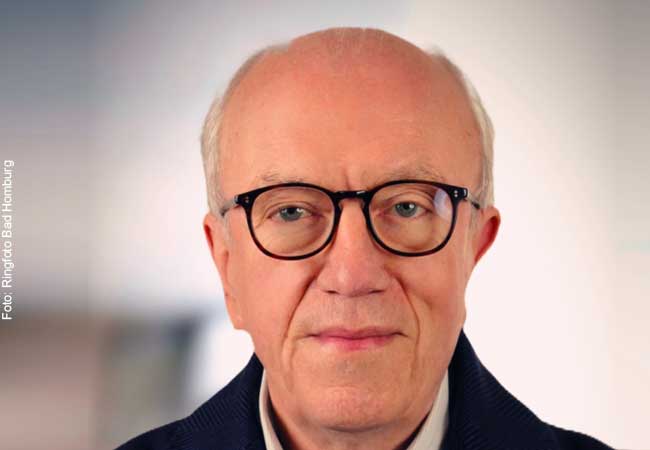Junge Menschen in Ausbildung, die sich um ältere Menschen kümmern: Sie stehen im Mittelpunkt des Forschungsprojekts „InterCare“ am Fachbereich Erziehungswissenschaften der Goethe-Universität. Eines steht bereits fest: Die gesellschaftliche Aufmerksamkeit für diese Gruppe ist weitaus geringer als sie eigentlich sein sollte.
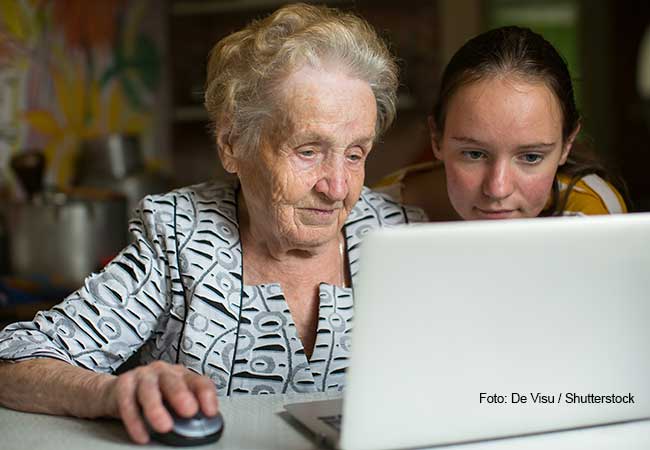
Ungefähr jeder achte junge Mensch in Ausbildung – also Schüler, Azubi und Studierende – ist (mit)verantwortlich für das Wohlergehen und die Pflege älterer, kranker oder behinderter Angehöriger oder anderer nahestehender Personen. Dies hat eine Studie des Deutschen Zentrums für Hochschul- und Wissenschaftsforschung ergeben. Damit ist diese Gruppe größer als die der Studierenden mit eigenem Nachwuchs.
Junge Frauen sowie allgemein junge Menschen mit Migrationshintergrund sind eher davon betroffen, Pflege und Ausbildung unter einen Hut bekommen zu müssen. „Eine Riesengruppe, die aber in der öffentlichen Wahrnehmung vollkommen untergeht“, sagt Dr. Anna Wanka, die mit ihrer Forschung herausfinden will, wie der Alltag dieser jungen Menschen aussieht, welche Schwierigkeiten sie meistern müssen und wie man sie dabei unterstützen könnte. Denn häufig beeinflusse die Verantwortung für einen älteren Menschen die Schulleistung sowie die Entscheidung für oder gegen ein Studium oder eine weiterführende Ausbildung, besonders in einer anderen Stadt. Und wer sich doch dafür entscheidet, hat mit einem schlechten Gewissen, Scham gegenüber Peers und Dozierenden, sowie Hürden in der täglichen Vereinbarkeit von Bildung und Pflege zu kämpfen.
Das Projekt „InterCare“ nimmt diese Gruppe als erstes umfangreiches Forschungsvorhaben gründlich in den Blick. Offizieller Start der Forschungen ist im Oktober 2024, von da an fließen über vier Jahre hinweg 1,2 Millionen Euro von der VolkswagenStiftung. Wanka hatte sich im Rahmen der Förderlinie „Herausforderungen und Potenziale für Europa: Intergenerationelle Zukünfte“ bei der Stiftung beworben. Sie leitet an der Goethe-Universität auch die Emmy-Noether-Forschungsgruppe „Linking Ages“, in der es um Alterskonstruktionen im Lebenslauf geht.
Angesichts der in allen europäischen Ländern alternden Bevölkerung sprach die VolkswagenStiftung mit ihrem Förderprogramm vor allem Forschungsgruppen an, die sich mit Fragen zum demografischen Wandel befassen. Die Verantwortlichen sollten aus mindestens drei unterschiedlichen europäischen Ländern stammen. Neben der britischen Anglia Ruskin University und der Jagiellonen-Universität Krakau nimmt auch die Hochschule Niederrhein in Möchengladbach in Person von Moritz Heß, Professor für Gerontologie, teil. In Polen zum Beispiel sei die Situation sehr stark dadurch geprägt, dass professionelle Pflegekräfte im westlichen Ausland, vor allem in Deutschland, arbeiteten, wo sie mehr Geld verdienten. In Polen fehlen diese Fachkräfte dann, was die Angehörigen dort umso stärker in die Pflicht nimmt.
In der ersten Phase der Studie wird es eine quantitative Erhebung in Deutschland geben: Wie viele Betroffene gibt es tatsächlich? Wie stellt sich die Problematik an Bildungseinrichtungen dar? Wo verunmöglichen die Regeln – zum Beispiel Anwesenheitspflichten in Labors und Seminarräumen – die Teilnahme am Ausbildungsgang? Die Ergebnisse sollen dann mit der Situation in Großbritannien und Polen verglichen werden. Für eine zweite Phase sind „dyadische Interviews“ geplant, die sich dadurch auszeichnen, dass ein „Tandem“ aus einem jungen Menschen mit Pflegeverantwortung und der gepflegten Person einzeln und gemeinsam befragt wird. „Die getrennte Befragung ist notwendig, weil auch über schambehaftete Themen, sowie Gewalterfahrungen und Freiheitsbeschränkungen gesprochen werden sollte“, so Wanka. Das Projekt ist zum Teil partizipativ angelegt, das heißt: Die Betroffenen gestalten den Studienablauf selbstständig mit und produzieren gemeinsam mit den Forschenden eine virtuelle Ausstellung sowie eine Podcast-Serie, um Bewusstsein für das Thema zu schaffen.
Hintergrund: Beitrag ITVNews | Beitrag BBC


